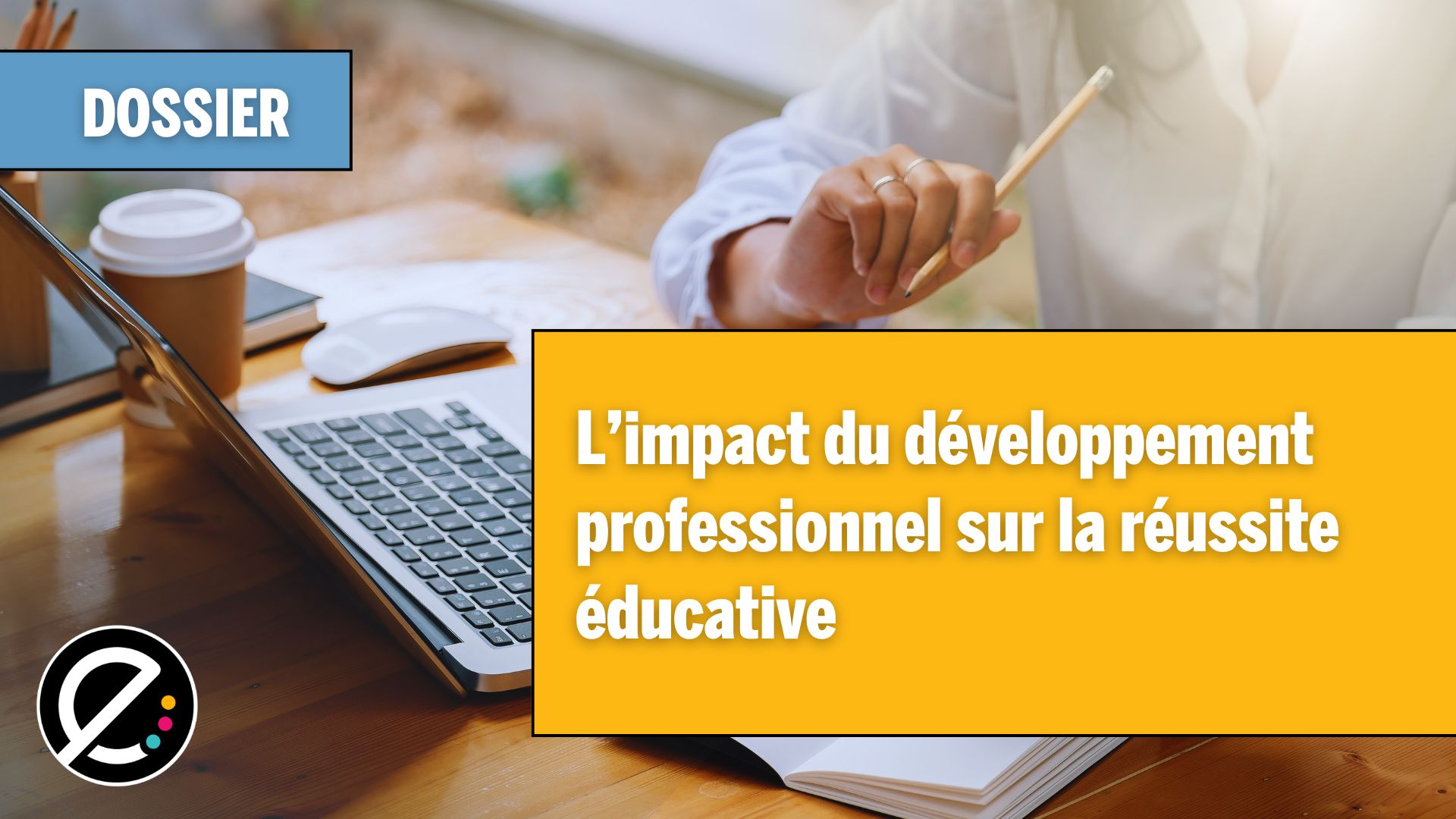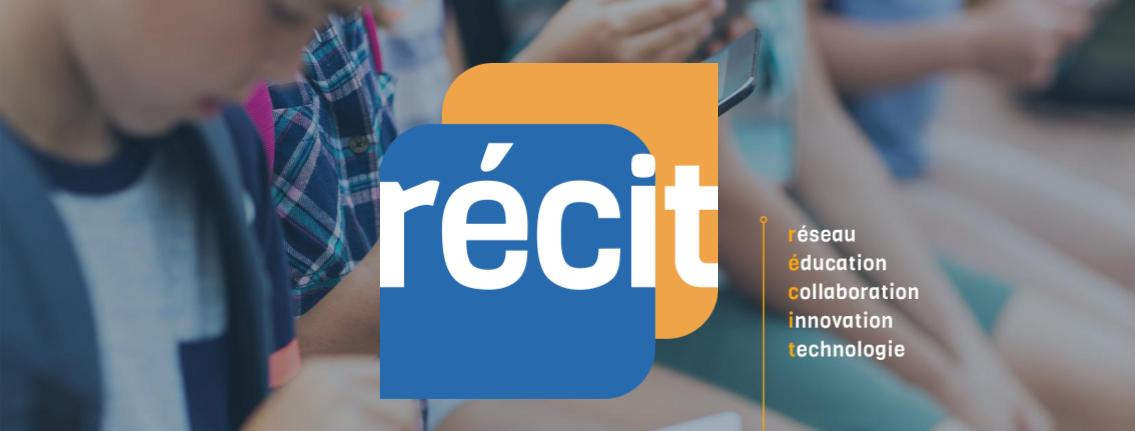À travers le monde, la continuité pédagogique a représenté un défi au cours de la dernière année. Même si certaines particularités sont propres à chaque région et que les mesures sanitaires n’ont pas été les mêmes partout, les réponses et les constats se ressemblent énormément.
La Délégation régionale au numérique pour l’éducation (DRNE) de la région Bourgogne-Franche-Comté, en France, a récemment tenu un séminaire à l’intention de ses cadres scolaires au sujet de la continuité pédagogique. L’événement a été l’occasion d’entendre le témoignage de dirigeants d’établissements scolaires d’Espagne, d’Égypte et de la Côte d’Ivoire. L’École branchée avait aussi été invitée à partager l’expérience québécoise.
Si, au début de la pandémie, toutes les équipes scolaires ont un peu perdu pied, il apparaît qu’elles se sont finalement trouvé de nouveaux repères par la suite afin de traverser la crise, tout en assurant les meilleurs services possibles aux élèves. Au lycée français international Molière de Madrid, en Espagne, les trois mots d’ordre ont été les suivants : rassurer, organiser et communiquer.
Au cours de sa présentation, Valérie Servisolle, la proviseure du lycée, a comparé les directions scolaires à des capitaines de navire qui ont abondamment utilisé trois outils pendant la dernière année : de l’huile pour la fluidité des communications, une machine à souder pour renforcer le travail d’équipe et une génératrice pour recharger les batteries de ceux qui connaissaient des moments d’épuisement. Bien sûr, son exposé se voulait figuratif, mais il exprime bien la situation vécue dans les établissements d’enseignement.
Parlant de son rôle de proviseure, elle a cité le Général de Villers : « Il faut être absorbeur d’inquiétude et diffuseur de confiance ».
Seconds témoignages de pratiques : Valérie Servisolle dit aussi ce qu'il en reste…#SéminaireDRNE2021, #ContipedaNum pic.twitter.com/xnV3N4UtQr
— Délégation régionale au numérique pour l’éducation (@DrneBFC) May 20, 2021
Enchaîner les rentrées
En Égypte, Philippe Bidet, proviseur du lycée Balzac du Caire, a dit à la blague (mais pas tout à fait) avoir vécu au moins huit rentrées au cours de l’année scolaire 2020-2021. Bref, son équipe a là aussi enchaîné les modèles d’enseignement (à distance, hybride, en présence) à de nombreuses reprises.
Cette période a néanmoins été « vectrice de créativité et de flexibilité ». Elle a aussi permis de repenser les communications dans l’école, en plus de simplifier les liens avec les parents. « Aujourd’hui, nous ne sommes plus en mode survie. Nous sommes dans la pérennisation de nouvelles pratiques », s’est-il réjouit.
Attention à la surcharge
De son côté, Jean-Claude Meunier-Lariotte, proviseur du lycée international Jean Mermoz à Abidjan, en Côte d’Ivoire, a aussi vécu une année scolaire mouvementée. Si chez nous l’accès à Internet était parfois un enjeu pour les familles, dans son coin de pays, ce sont les coupures d’électricité fréquentes qui causent bien des soucis pour l’enseignement par le numérique.
« Des enseignants expriment une “overdose” du numérique », a-t-il dit. Néanmoins, tous sont conscients que le numérique doit être inclus dans les pratiques pédagogiques d’aujourd’hui. De même, il se réjouit que « les incontournables de la pédagogie active soient enfin mis de l’avant ». M. Meunier croit maintenant que « le développement professionnel deviendra un levier pour trouver l’équilibre » entre les nouvelles pratiques liées au numérique et le besoin de déconnexion exprimé par certains.
Maintenant que la crise se résorbe, les prochains défis identifiés par les panélistes sont les suivants :
- la prise en charge des élèves à besoins particuliers et la nécessaire différenciation pédagogique;
- le besoin de repenser l’évaluation;
- le maintien des acquis en termes de communication, à l’intérieur des équipes et avec les parents.
Seconds témoignages de pratiques : @Riomarti Et maintenant…#SéminaireDRNE2021, #ContipedaNum pic.twitter.com/C8gWzYnwgi
— Délégation régionale au numérique pour l’éducation (@DrneBFC) May 20, 2021
Au terme des échanges, il est ressorti que la bienveillance, la communication et la collaboration n’auront jamais été aussi présentes dans les écoles de partout dans le monde. Tous étaient aussi d’avis que nous avons assisté à une incroyable montée en compétences au cours de la dernière, et que cela aura signé la fin de la résistance face au numérique.
« Le monde de l’éducation avait le nez dans le guidon. Nous devons maintenant regarder au-delà. Les murs de l’école fondent », a conclu Nathalie Bécoulet, la déléguée régionale au numérique pour l’éducation de la région académique Bourgogne-Franche-Comté.






